Jimingyi, Heibei province
After cycling straight through the outskirts, at our first opportunity we ducked through a small arched side entrance into the walled town of Jimingyi, a world away from the loud modernity on the other side. Our immediate reaction was that we had made a mistake as we stared at abandoned homes and piles of refuse, but we were intrigued nonetheless, so we squeezed down a narrow path between earthen abodes that led us to the inhabited part of town. When we paused in front of the entrance to a temple, a Chinese tour guide asked if we needed help, then interrupted his tour to call a local family that hosts visitors in their home. A young guy met up with us on his motorcycle and we caravanned back to his place. After literally piling our bags up in a corner of a tiny room where the door could not open all of the way without hitting the bed, we set out on foot for further exploration.
Walking on top of the city walls at sunset and looking down at the courtyard homes with productive gardens and a few farm animals felt like we were witnessing the ideal of a simpler life. Folks in their yards smiled and waved, even posing for telephoto shots from above. While efforts are being made to boost tourism at Jimingyi, it seems that it has not yet reached the critical threshold where the residents resent the constant attention and examination of their daily existence. Yet the multitude of crumbling homes and overgrown weed patches could not be ignored either. While we may think they are fascinating and photogenic, perhaps making a decent living in an outdated community isn't so romantic for those actually faced with the prospect of doing so. Whether Jimingyi can develop its tourist draw without losing its soulful character remains to be seen. We were grateful to stumble upon it when and how we did. Hopefully by supporting a local family doing their part to keep Jimingyi authentically vibrant, other travelers will have the chance to experience the same.
We routed through Datong specifically to visit the beautiful Yungang Caves, but our time with Hong, a bicycle enthusiast, and his English-speaking teenage son Jay, soon became the more significant experience. We connected with them through a cyclist network called Warm Showers (no comments, please) that operates much like Couchsurfers. While we had hosted cycletourers in California, this was our first time to be guests and we simply did not know what to expect, but given our experience in China thus far we should have anticipated just how generous our new friends would be. When settling in to Hong's bicycle shop/multi-bedroom apartment, we quickly made the connection that since Hong sells Boskey touring bikes, we all know Shao Ming, the founder of the company that we visited in his Beijing HQ, which we had also arranged through Warm Showers.
Straight away, we were treated to a yummy dumpling lunch at a local restaurant. Almost too full to move, we then formed a small bicycle posse to tour the city sights. Hong made it an official event by doing a superhero-like costume change into full body black and neon cycling attire and blasting Beatles tunes from handlebar speakers. It was almost a Chinese Critical Mass! Just before an afternoon storm hit, they even helped us run mundane errands like buying contact solution. Who knew it would be at the glasses store and not the supermarket? Not us! In the evening, Hong worked on the bikes by flashlight since the storm knocked out the power for a while. Once the power was back, I did laundry for the first time since Beijing (the wash water was black, no joke) while Matt got a lesson from Jay about QQ, the Chinese equivalent of Facebook. Hong went out to the supermarket, and brought back bags of ingredients for an amazing homemade hot pot dinner.
We were still full the next morning when we boarded a bus for the Yungang Caves. It took a lot longer than we expected to get there since the road was blocked by workers protesting against their company failing to pay them their earnings. While I felt bad "crossing the line" (there was no line to speak of, more of a blobby huddle) on foot to catch a different bus on the other side, Jay was anxiously ushering us onward and we didn't know what the nature of a police presence might entail. Once at the caves, we were mesmerized by giant Buddhas as well as mini-Buddhas filling grottoes and niches in a band of sandstone cliffs. The concentration of 51,000+ ancient statues originates from the influences of the Silk Road in the 5th century.
Returning "home," we were greeted with bowls full of handmade pork dumplings that Hong and bicycle club friends had been making all day. Then Matt and Hong poured over maps as Jay translated the Chinese characters of place names into pinyin for us. Hong asked to see our photos from the caves and in downloading them to the iPad, Matt accidentally deleted them all. While he was freaking out and losing it, Hong immediately got on the internet and downloaded software that he insisted would recover the deleted files from the memory card. We were skeptical, but we figured why not give it a try, and of course, it worked perfectly! In a modest attempt at repayment for all they had done for us, we took them out to dinner at Dico's, a Taiwanese-owned American fast food chain, since Jay loves all things American, especially the blues and KFC.
The next morning, Hong and Jay accompanied us twenty miles out of town, but not before filling us up with a hearty bowl of noodles and a tasty tea-steeped egg. They would have cycled with us all day or even longer, but they had to get back to greet their next Warm Showers guests, a Polish couple entering China from Mongolia. It is Hong's dream to cycle around the world, cigarette pack in his back jersey pocket and all, so perhaps someday we really will be in a position to properly reciprocate his generosity.
We reached the cover of a gas station at a random intersection just before the sky ripped open with a fantastical lightning show and buckets of rain. It was dusk by the time it had passed, so we inquired about a guesthouse among the other folks taking shelter alongside us. The responses were mixed between "none here" and pointing to a shabby looking restaurant. At first the owner of the restaurant also responded, "none here," but we must have looked desperate enough that she relented and walked us through a muddy expanse to the back of their property, showing us a musty room with two rickety twin beds, a small TV, and a plastic basin to catch the water from a spigot. Once full, you simply toss the water out into the yard. The bathroom situation remained a mystery, but we decided to stay anyway.
Then, two adorable girls, 11 and 9 years old, began hovering around us excitedly and speaking surprisingly good English. Just after we handed over the $8 for the night, they translated, "Also, my aunt wants to tell you there is no electricity." Oh. They followed us to the room with lit candles, then promptly disappeared, returning a few minutes later with baby rabbits for us to pet. Even though we were so hungry and exhausted, the girls were so sweetly excited to have us there that I let them take me on a tour of the rabbit hutches, crawling inside of them and hunching over, followed by the chicken coups. When I finally asked about the W.C. situation, they led me just off of their property to a concrete platform with a hole right over the stream bank. Lovely. Mystery solved.
Meanwhile, Matt was firing up the camp stove for some of that pasta we hauled from Beijing, so I had to decline further invitations to "play." It was a romantic candlelit Italian dinner for sure. Except for a large centipede I spotted scurrying under the bed (the only creepy-crawly that truly freaks me out), stuffy noses from the musty bedding, and the lights turning on in the middle of night when power was restored, we actually slept pretty well. By the time we were leaving the next morning, we had kind of developed a fondness for the place and it was hard to say goodbye to those adorable girls who were still wanting me to play with them.
Reading a short passage in our guidebook led to further internet research about this tiny village named "Li Family Mountain." I became intrigued enough to advocate for a significant reroute to see it firsthand. We first explored the ancient town of Qikou close by, a prosperous trading port during the last Qing dynasty until the Japanese army took over in 1938. Here we got out first glimpse of the mighty and muddy Yellow River, the first time that we had seen a river that looked like an actual flowing river since we started our westward journeying. Our time in Qikou was sadly a little rushed, but necessary for tackling the steep single-lane road up to Lijiashan. Here we had another first for this trip: pushing our bikes uphill! Trusting a sign that simply pointed to a footpath through an orchard, we followed it around the curve of the hill and were overwhelmed with a sense of rich discovery by what we saw in the last rays of golden sunlight. It was the most charming collection of the signature Shanxi cave-style houses built into nine levels on both slopes of a steep ravine.
As it turns out, we were lucky to get a room tunneled into the hillside as the village is a popular study site for art students ever since Wu Guanzhang, a famous Chinese artist, "discovered" it in 1989. I mean that in the sense that Columbus discovered America, given that the particular Li family hosting us has lived there for at least six generations. Lijiashan is historically connected to Qikou as an enclave of wealthy merchants sequestering their families remotely in the hills and commuting down to town to do business. Now only a few of the cave homes are occupied with the majority of the forty or so residents being quite elderly, but toughly independent. It was incredible to watch a congregation of hunched and wrinkled women negotiating the narrow paths along drop offs with their canes, as well as farming tools.
After a communal home cooked dinner in the open air courtyard, a few of the visiting art teachers took an interest in Matt as a model. At first, the brush strokes were done on the sly, but since creating art seems to be a spectator sport in China, an enthusiastic crowd soon gathered around the painter. At that point, Matt was requested to pose for the remainder of the portrait in progress as the observers cheered the artist on. In return, he was presented with a scroll of himself as interpreted by three different artists, one of national renown named Zhang Xiangzhou. Once the all-guest photo shoot of Matt, the artists, and the portrait was finished and the general excitement was over, we stepped outside on our perch over the rest of the village, appreciating the contrast to our Chinese experience thus far. Only a handful of lights twinkled across the ravine and looking up to a dark clear night, we could see entire constellations!
The next morning we walked along the paths connecting all levels of the village, taking note of several residences in the midst of restoration and contemplating the changes to come. Like Jimingyi, we worried that promoting tourism here will diminish the very peaceful character that makes it so attractive. If the development comes from the community, with invested local families maintaining control, a sustainable tourist economy just might be able to be nurtured. But if the day tripping tour guide using a headset microphone to give her spiel to three national tourists standing two feet away from her in the quietest place in China is any indication, the larger forces behind tourism, namely government and mainstream Han culture, will actually undermine Lijiashan's charm and dictate the course of its future.
All morning long, we looked to each other for an excuse to stay another day, but verbally stuck to the plan that we needed to keep moving on. Our bags were packed, our bike shorts were on, sunscreen generously applied, when our host invited us to eat an early lunch before we departed. The noodles mixed with bits of locally grown squash were so delicous and our hearts were so heavy that we simply couldn't go. It was with great relief that we unpacked and deoutfitted in order to truly honor the specialness of this place by savoring it for another day.
Our departure debate was paralleled by a Vietnamese traveler that we had enjoyed sharing our mealtimes with. Dzung was given only a stingy 15 day visa, so while he also longed to stay another day, he was forced to move on, envious of our 90-day visa luxury. Saying goodbye to him as he reluctantly slung on his backpack and started down the path served as a reminder of the travel privilege we inherently benefit from just by being American. In order to enter the vast majority of countries in the world, visas for Americans are hassle free to obtain and of generous length, if a visa is even required for us. This is not the case for people of other nationalities, whom after wading through piles of b... beaucracy, may still be denied without justification. It is sadly ironic then, that only one-third of Americans hold passports when international travel is comparatively so accessible for us!
These were thoughts and emotions running through our minds as we spent the most relaxing day ever reading in the sunshine, hiking the surrounding ridge lines, and of course people watching from our view of nearly the entire village. The next morning we still weren't ready to leave, but that only guaranteed that Lijiashan would remain idealized in our memories forever.
Still glowing from Lijiashan and tiring of the crowdedness of major attractions with ridiculously expensive entrance fees, we again redirected toward another ancient merchant village dominated by a few family lines. This time we descended into a winding river valley, again right at dusk. With most buildings uninhabited and the gates closed up of those that remain, the narrow cobblestone streets were eerily empty. It was hellishly bumpy to ride around, so Matt stayed with the bikes while I disappeared down a maze of alleyways looking for signs of life, or at least an open doorway. Fortunately, I found a teenage girl and her younger sister out on the street and asked where we could find a place to stay. She responded in English, "My home," and led me there. I was a little embarrassed to meet her grandparents since I looked like I had just walked out of a coal mine. It had been one of our worst days for grossness along the road. The fact that they did not kick me out and showed me a shower room with a heat lamp (despite not having a flush toilet) made it a done deal. I found my way through the now fully dark maze back to Matt, who was pacing with stress because I had been gone so long, and greeted him with only, "I hope you are ready for a homestay!"
Finding their home again was a challenge rewarded with an awkward but memorable dinner. We were led into a large room with a table pushed against the wall and two chairs facing the wall. The grandparents sat on a bed on either side of us to watch over us while the teen brought in dishes. We apparently were not eating robostly enough for their satisfaction. Despite holding chopsticks in one hand and a delicious fried bread in the other and quickly alternating the two going into my mouth, they emphatically and repeatedly yelled "Cha!" at us while making eating motions. Then, the younger sister, about 6 or 7 years old, came into the room, lifted up grandma's shirt and began nursing on her. After doing a brief double-take, we averted our eyes while grandma made a feeble attempt to stop the persistent girl. Then grandpa tapped my arm and pointed to the girl, forcing us to look again. He acted out tears, but she was certainly not crying. We just shrugged our shoulders and tried to focus on finishing our food.
We slept in the what seemed to be the parents' room based on a collection of wedding photos, but they did not seem to be present in the household. After a less eventful breakfast of cornmeal porridge, various shredded and preserved vegetables, and more bread, we walked around the entire village that was only slightly more lively in the daylight, but still quite scenic and intriguing. We packed up mid-morning and said goodbye to our sweet senior hosts. As a grand finale, while taking a parting shot of the family, the odd little girl went in for another round of exposing grandma to suckle her. When grandpa swatted her away, she tried to photobomb my picture by jumping in front of the camera a few times! Well, I guess it wouldn't be a homestay if a little weirdness didn't crop up here and there...We'll take a little off-the-beaten-path bizarreness we don't understand over a predictable standard itinerary tour any day!

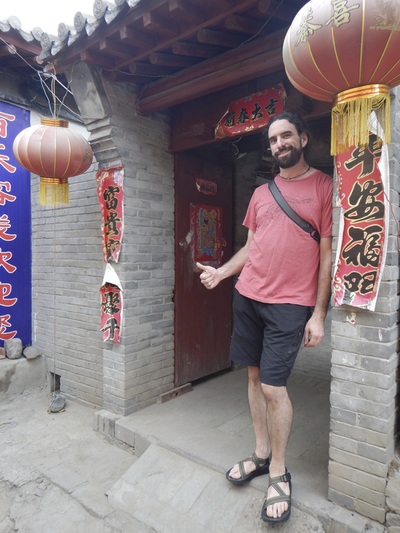
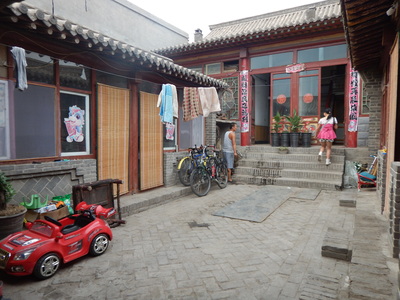
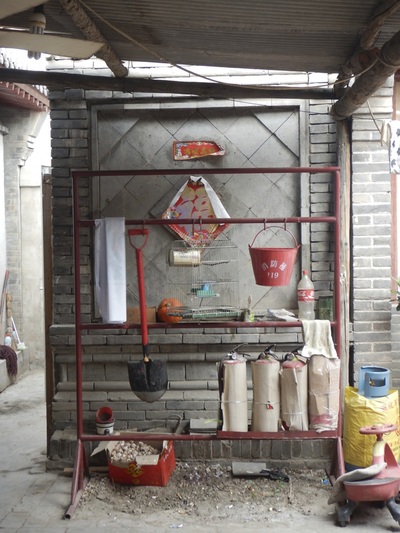
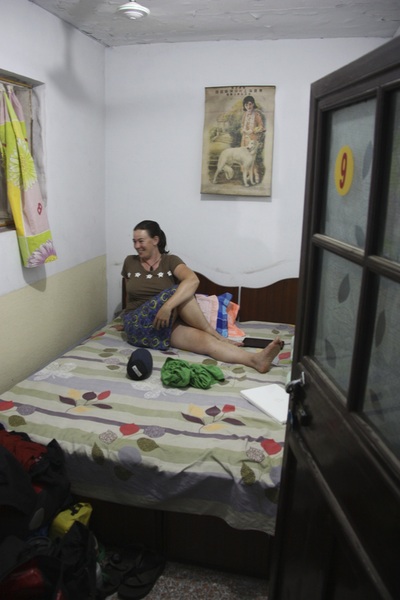
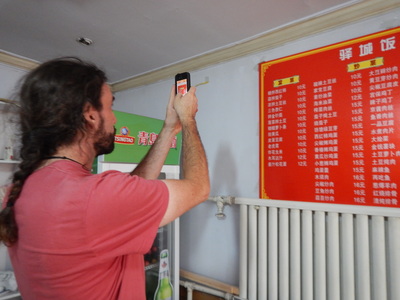
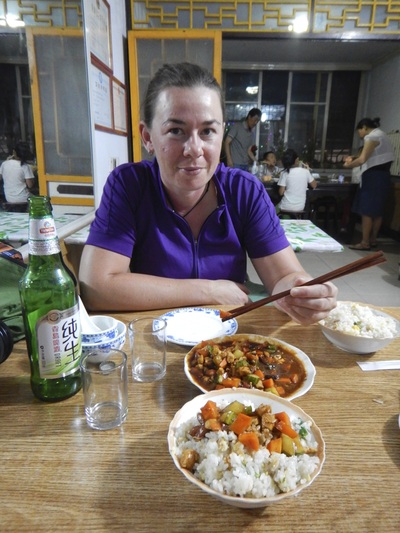
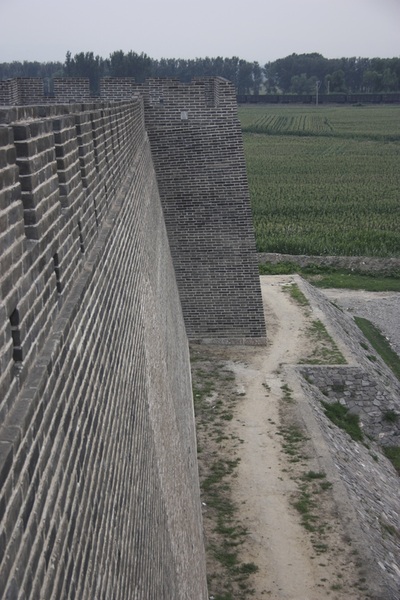
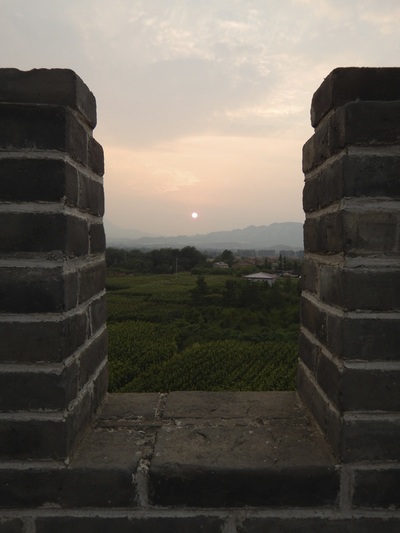
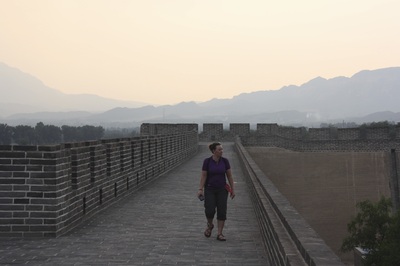
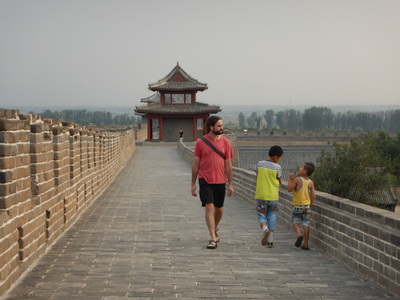
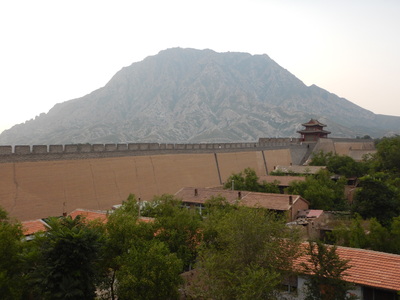
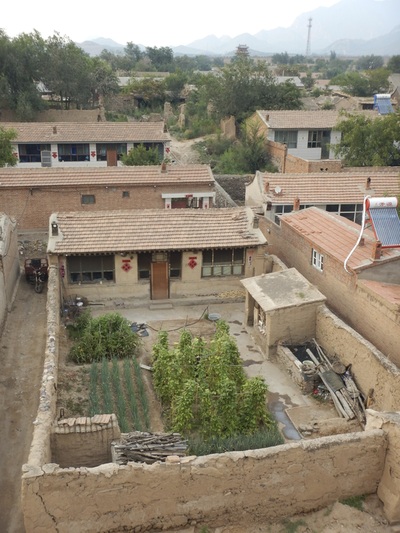
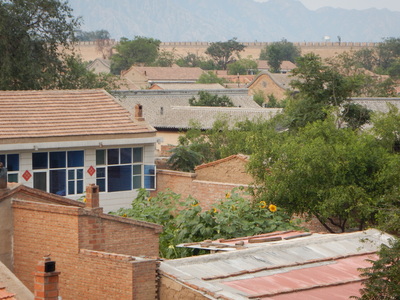
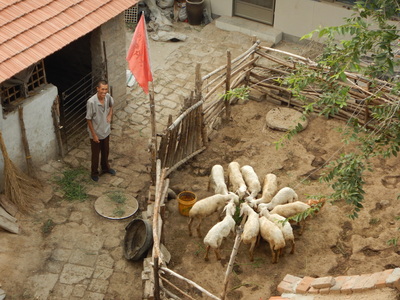
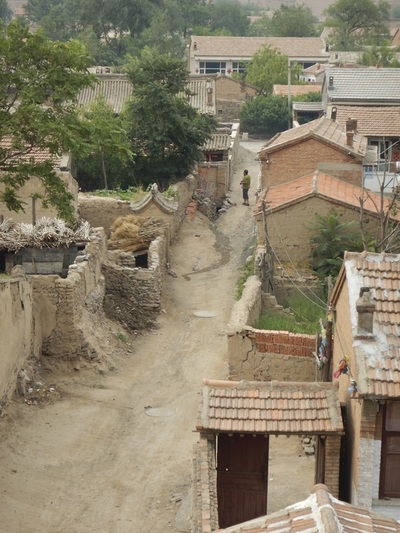
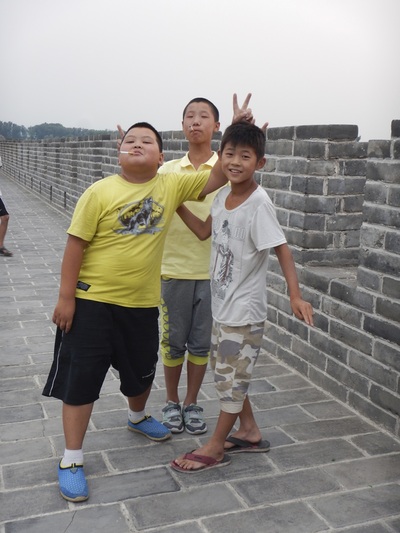
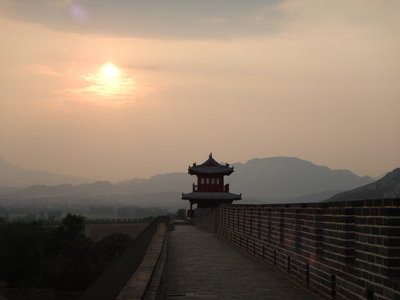
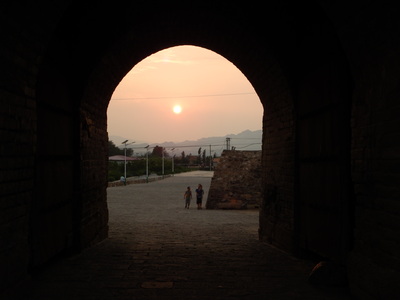
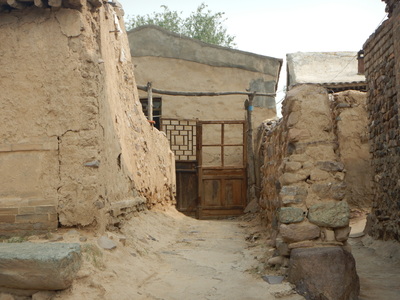
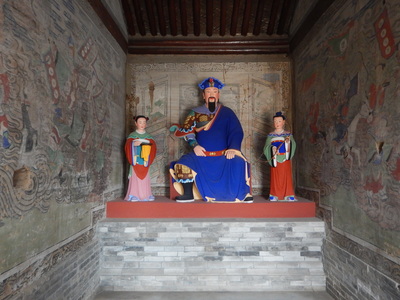
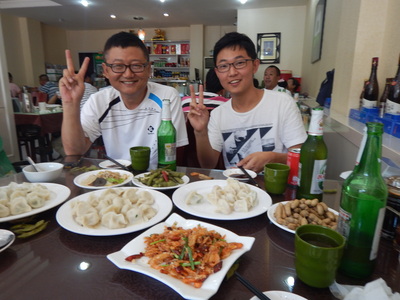
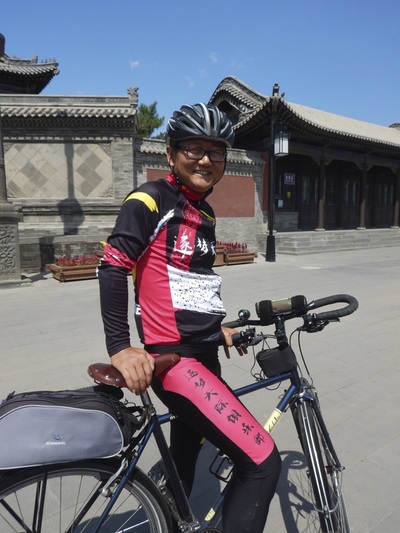
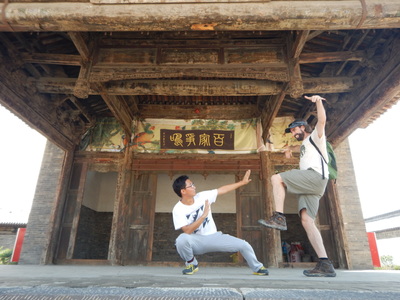
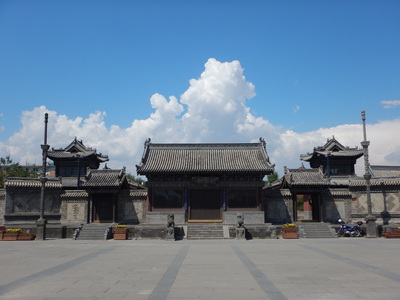
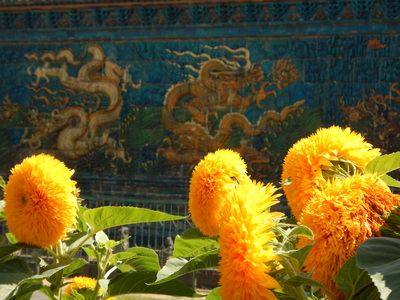
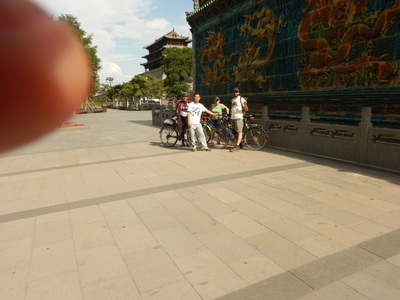
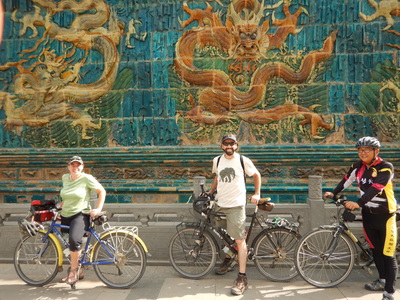
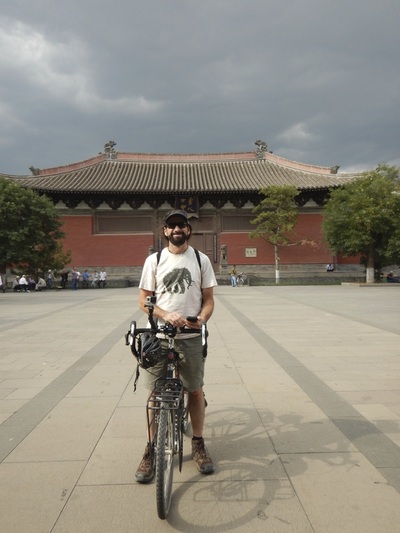

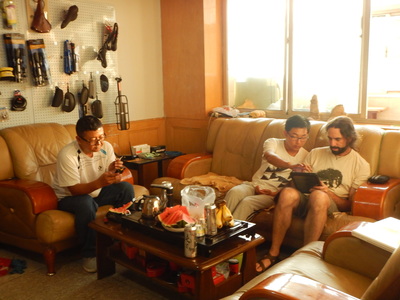
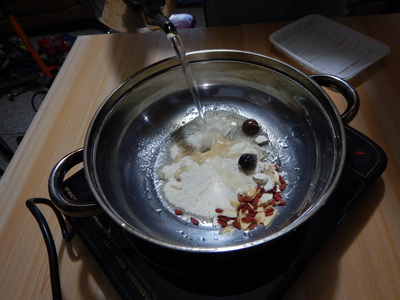
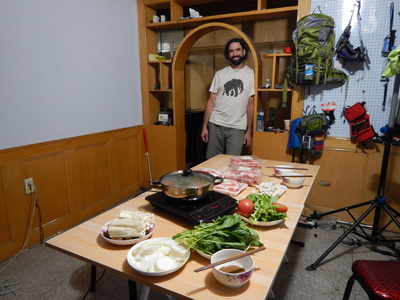
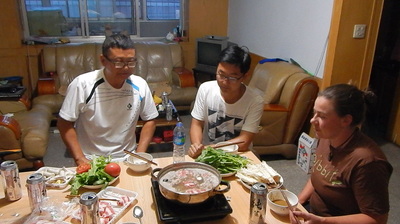
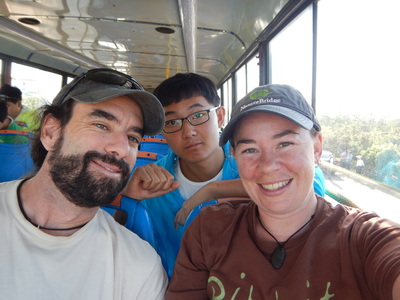
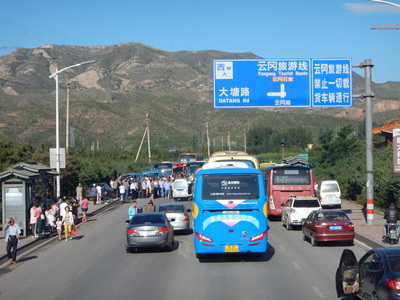
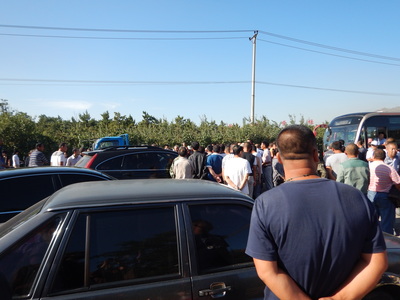
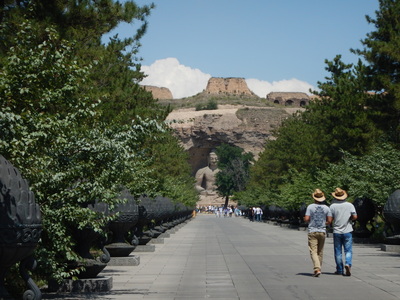
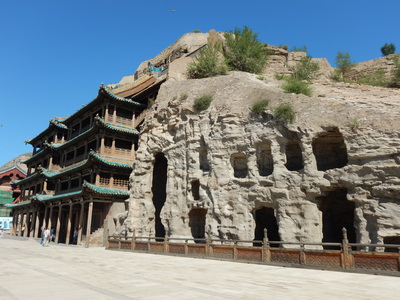
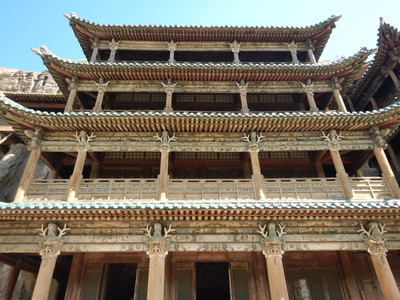
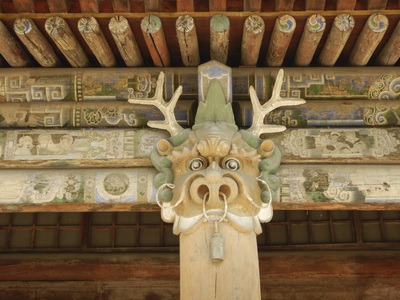
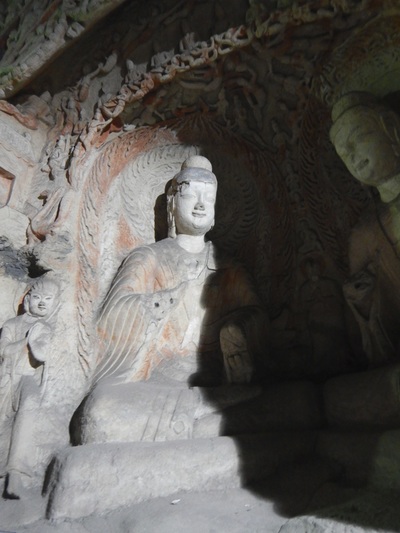
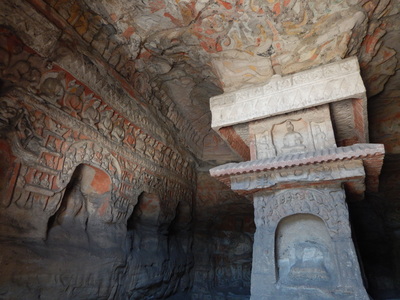
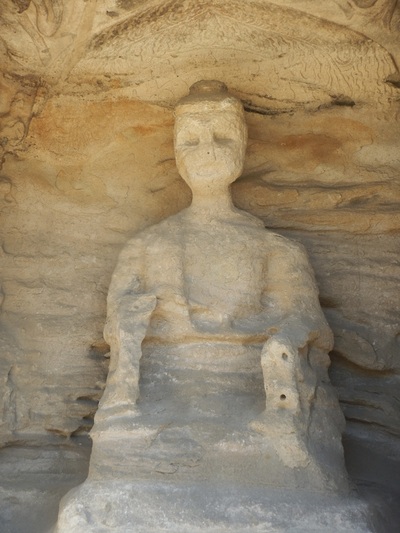
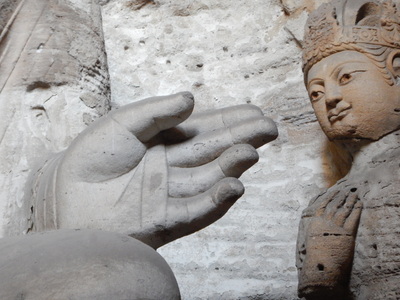
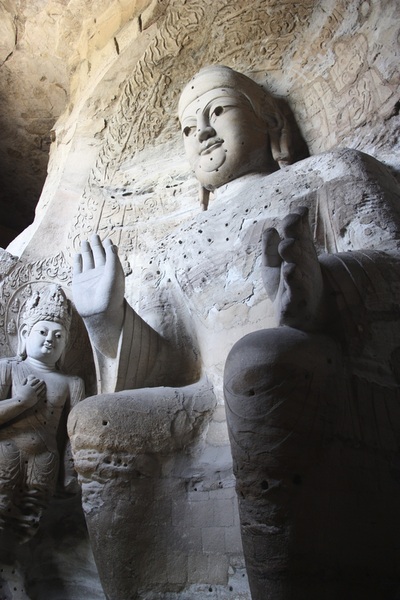
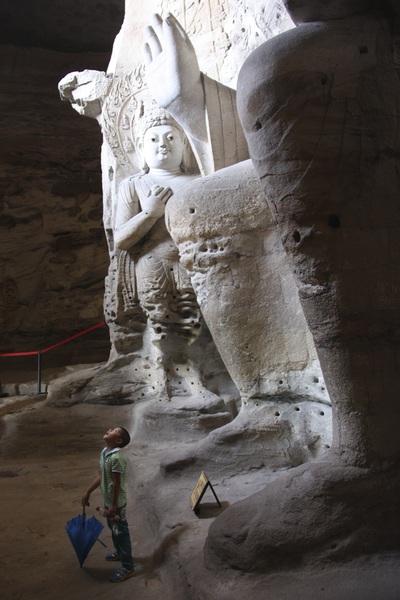
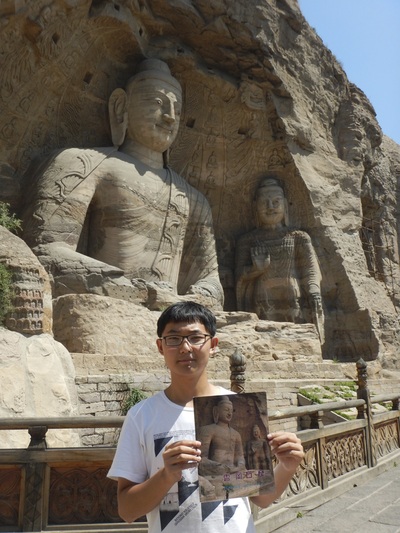
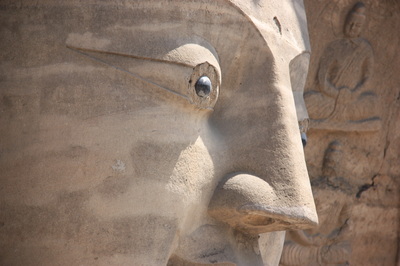
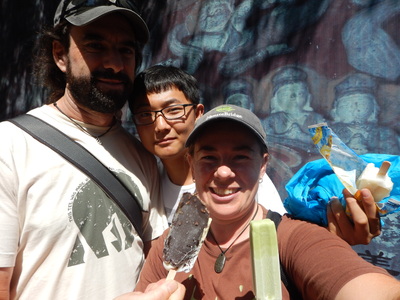
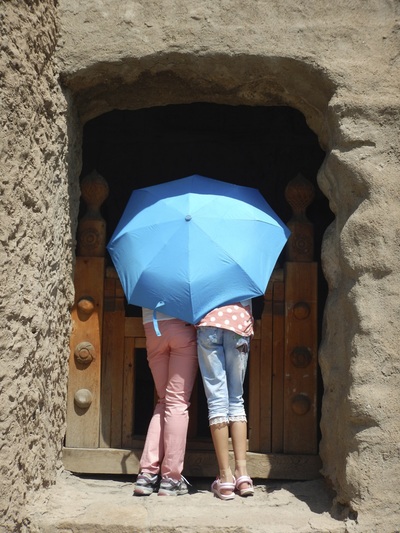
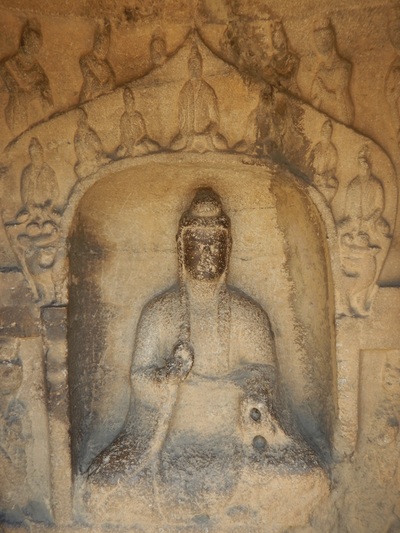
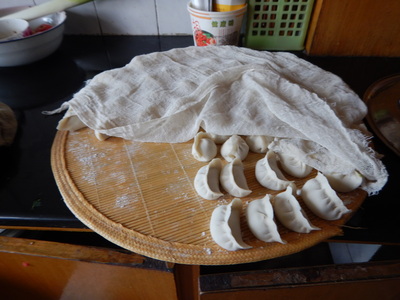
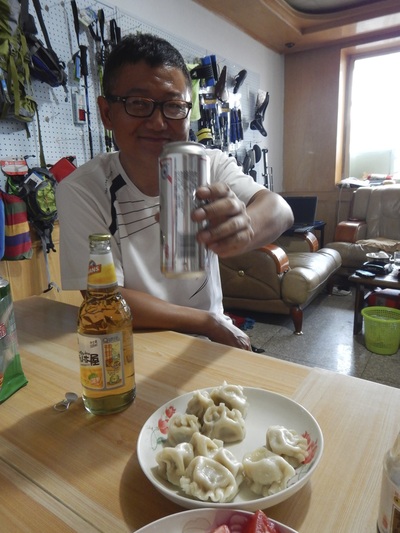
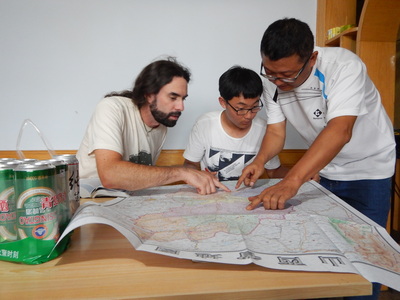
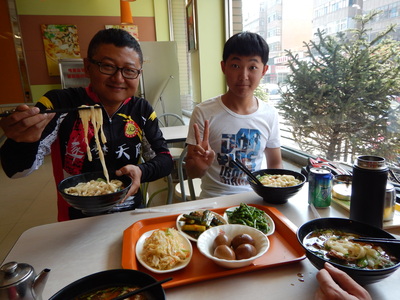
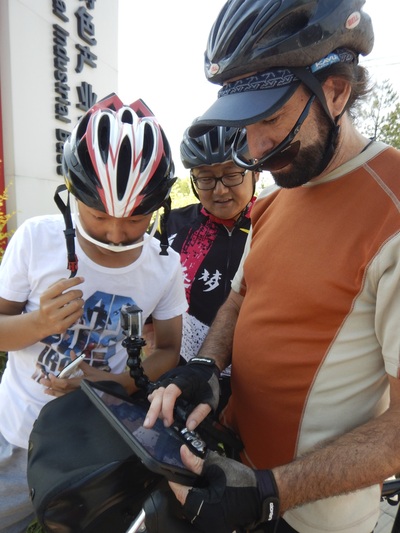
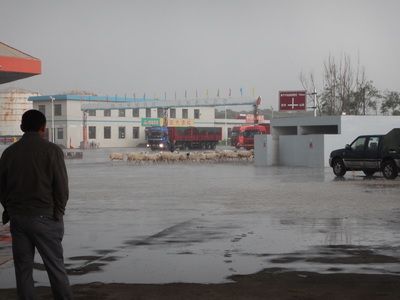
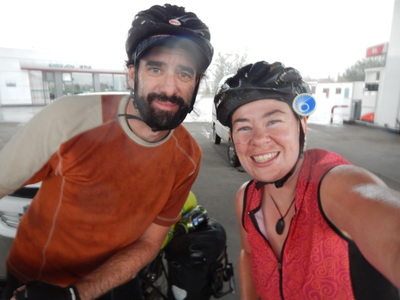
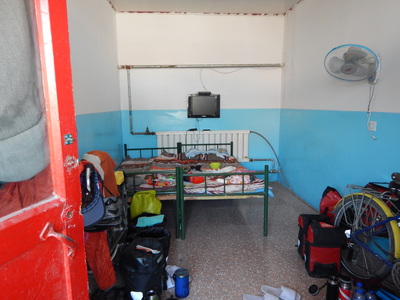
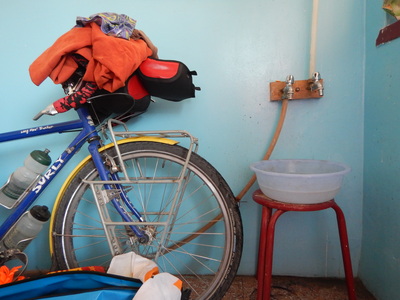
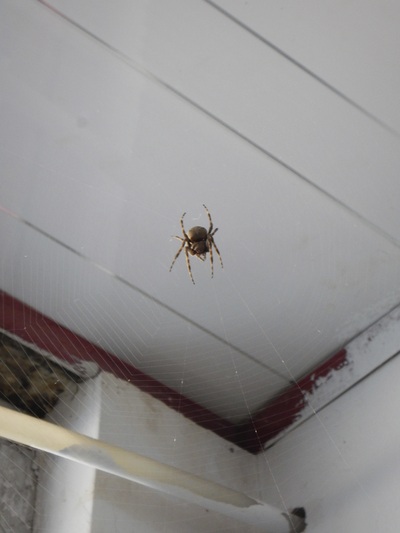
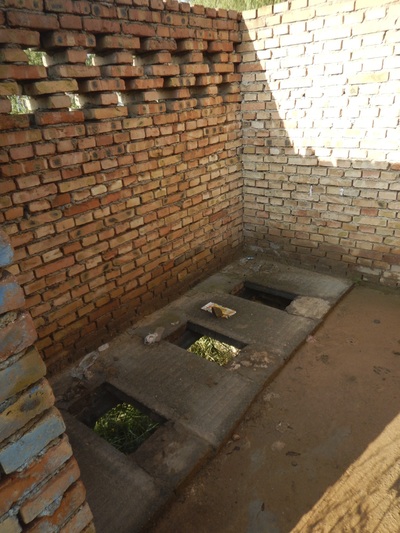
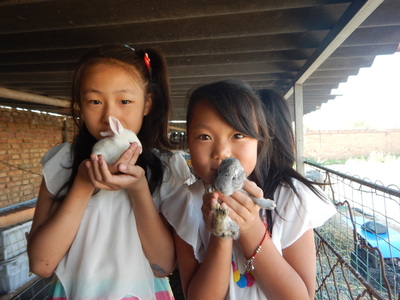
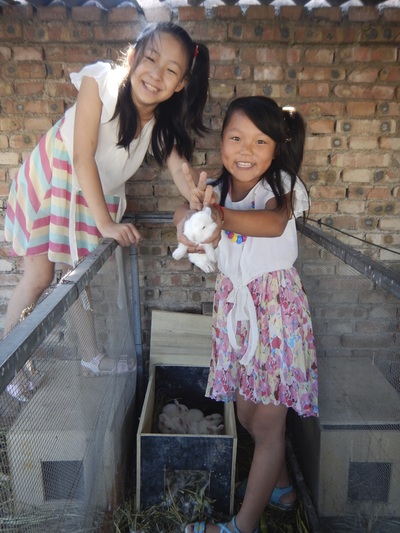
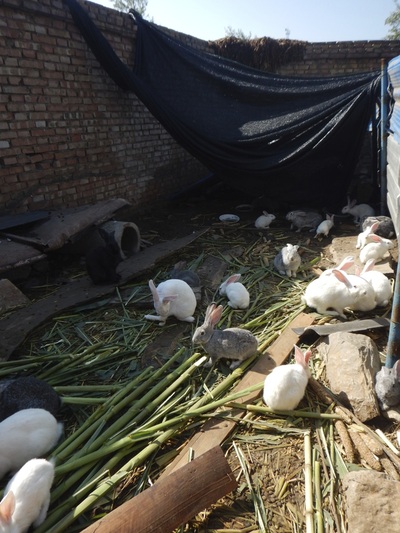
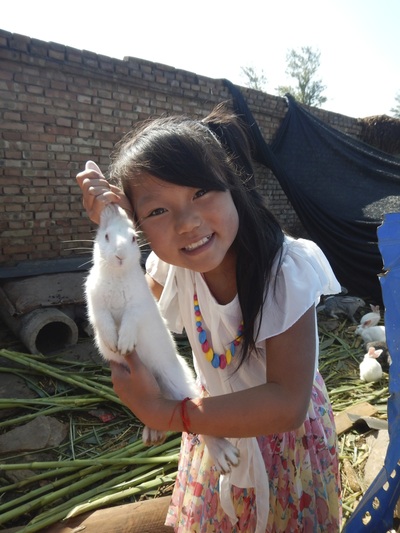
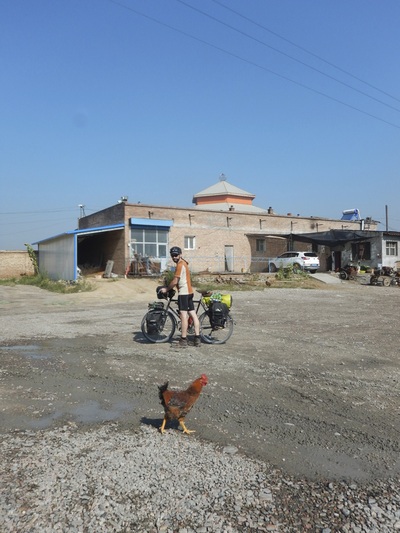
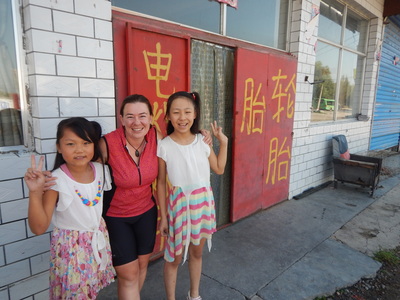
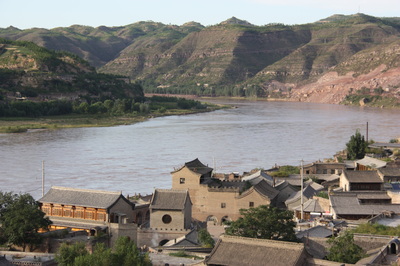
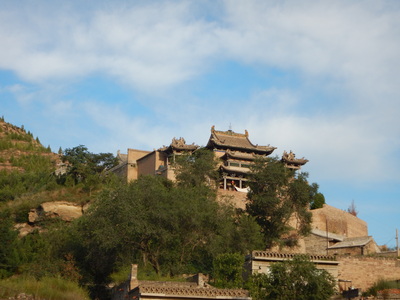
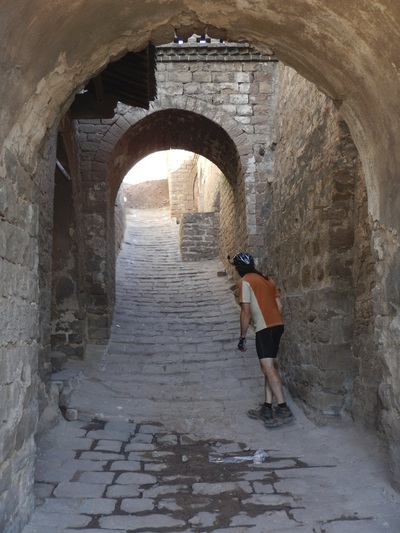
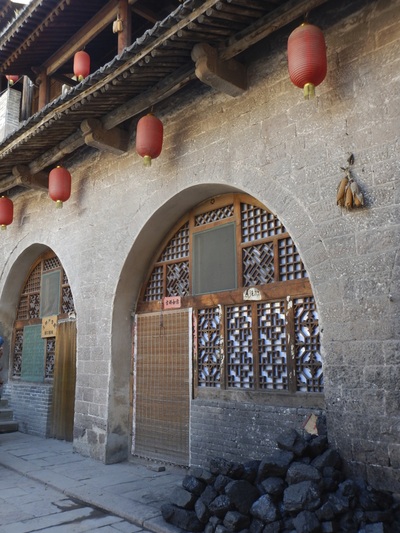
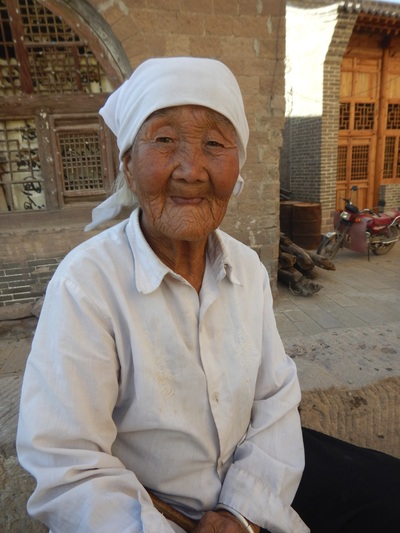
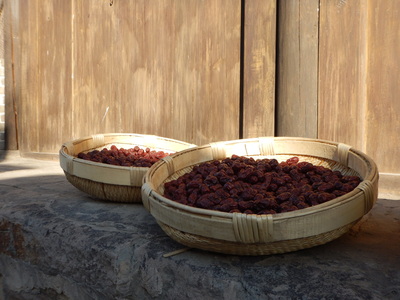
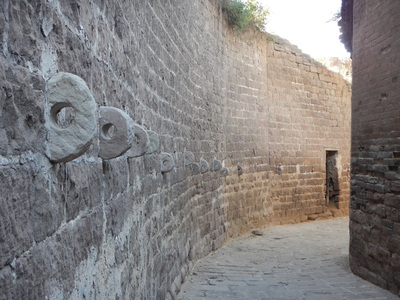
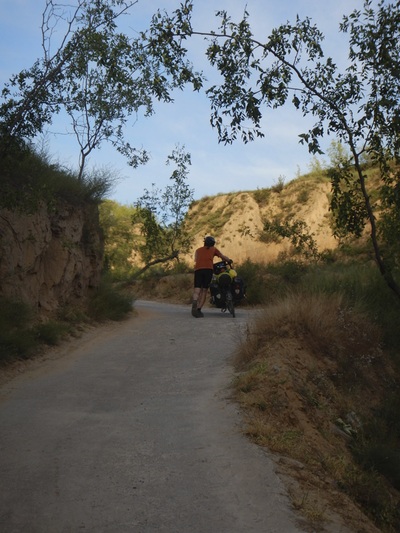
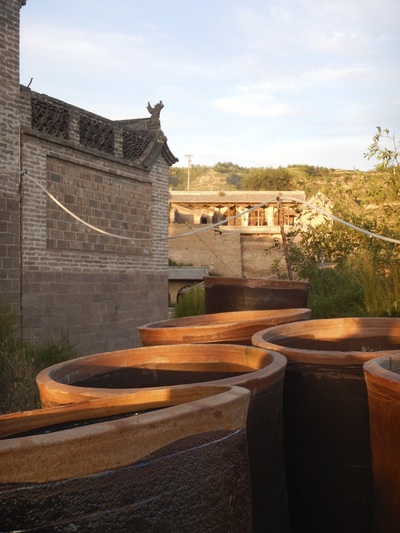
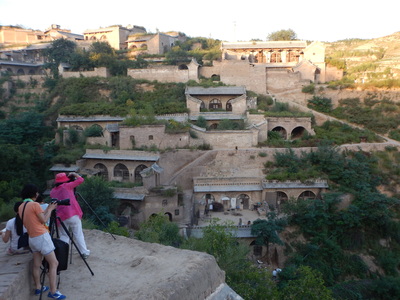
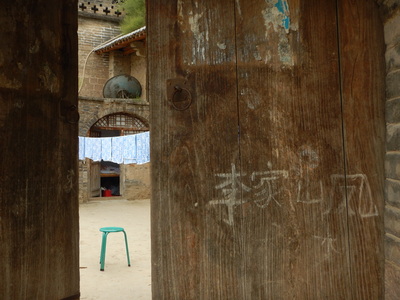
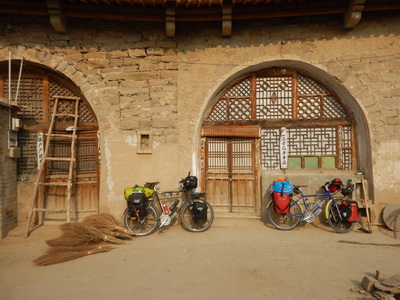
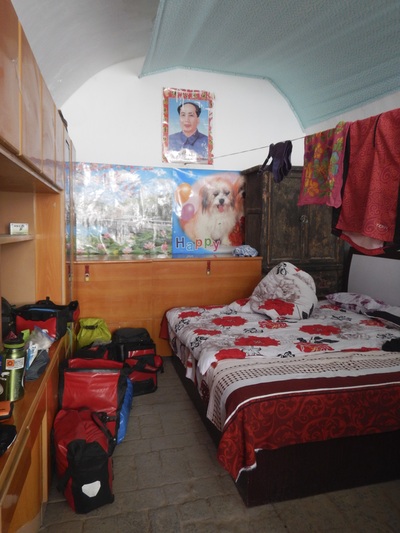
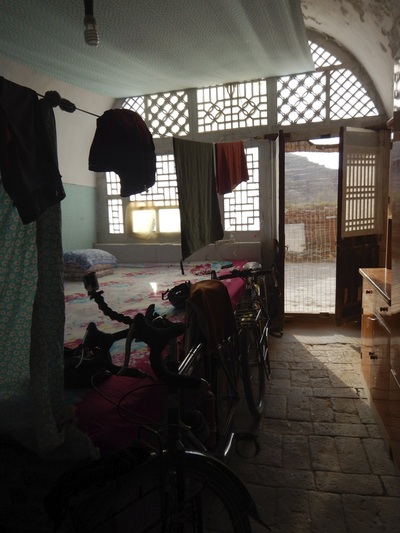

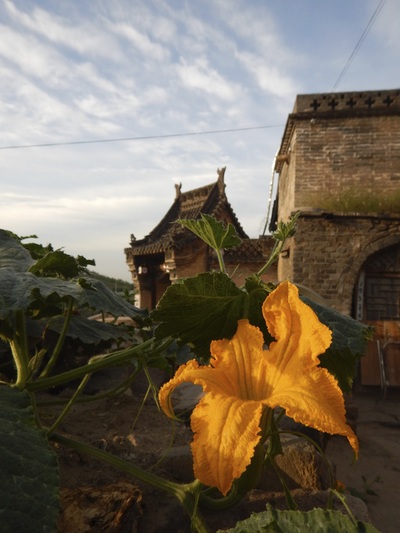
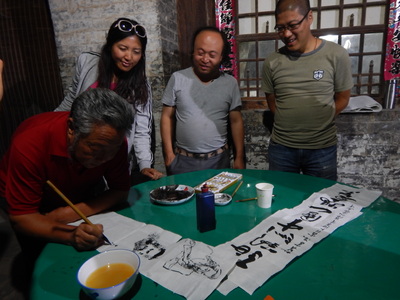
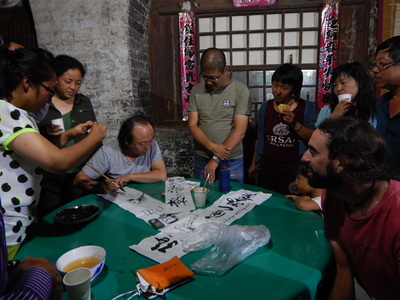
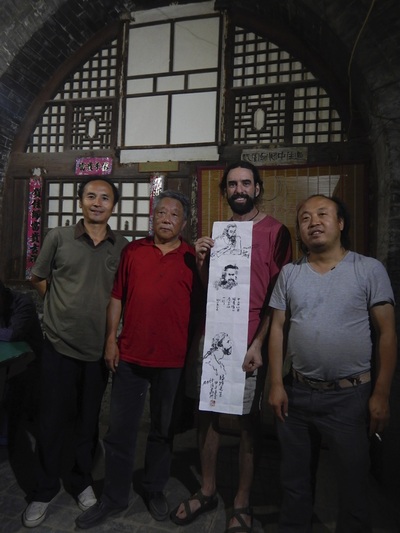
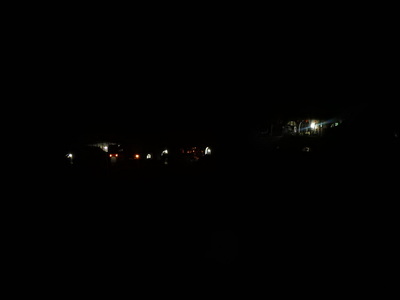
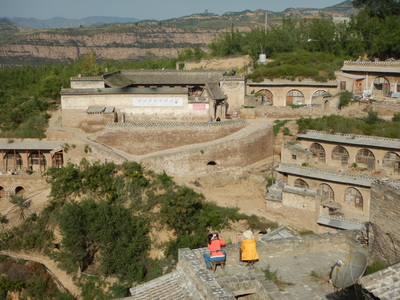
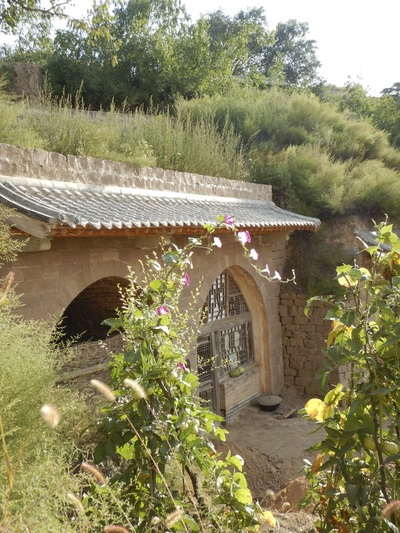
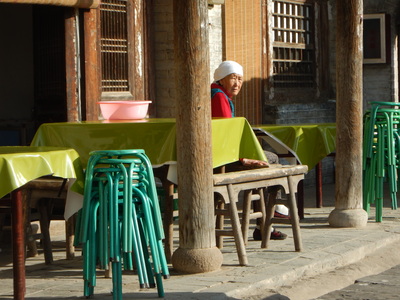
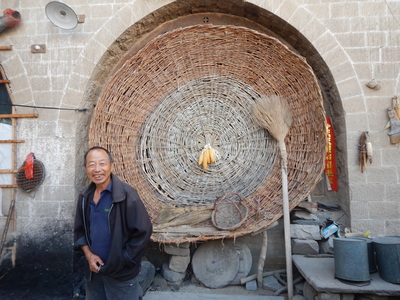
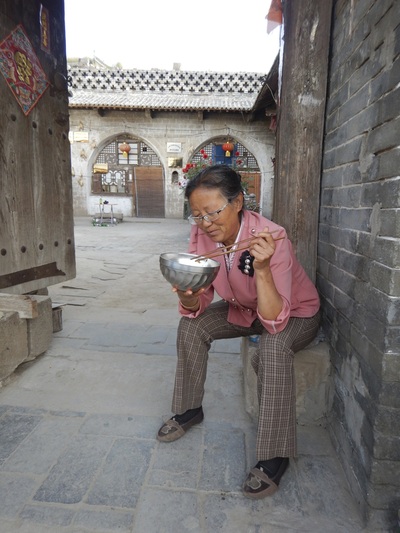
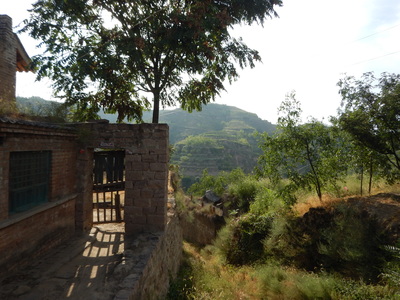
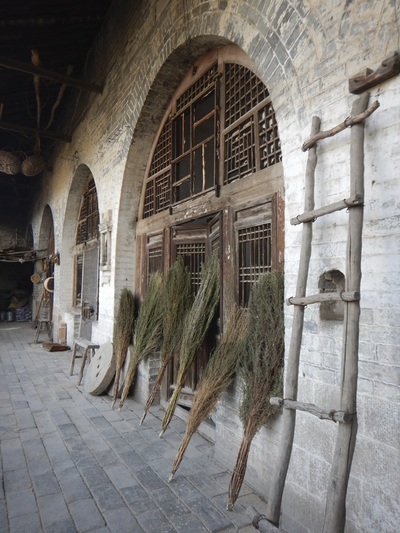
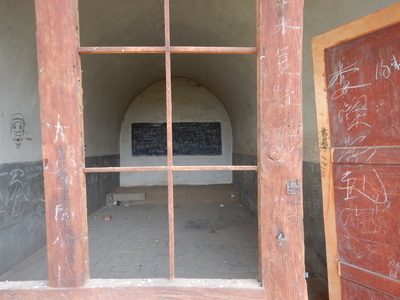
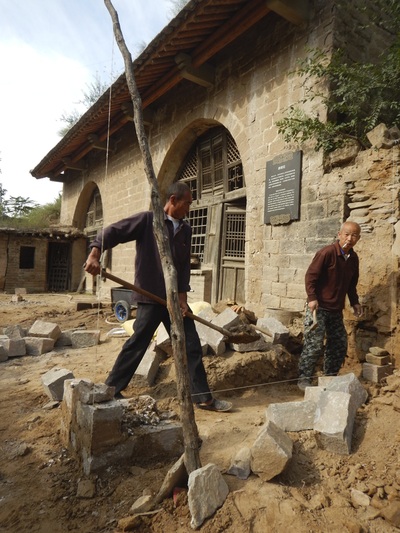
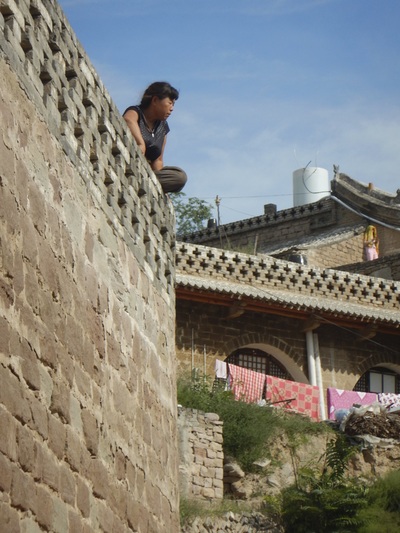
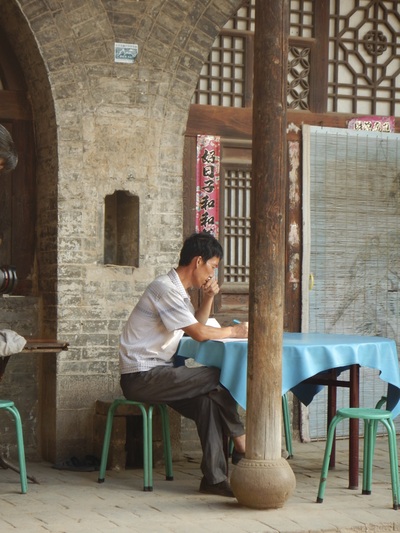
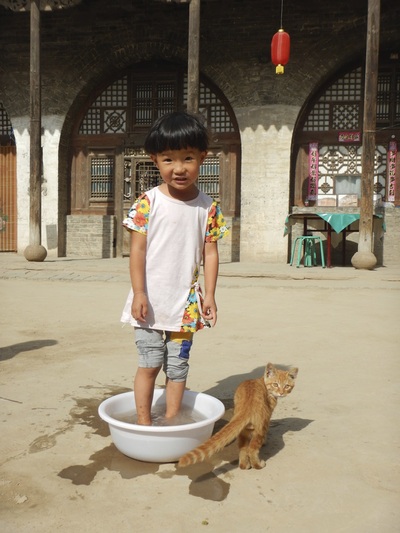
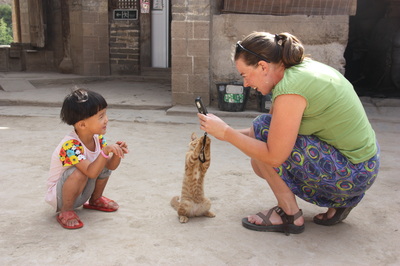
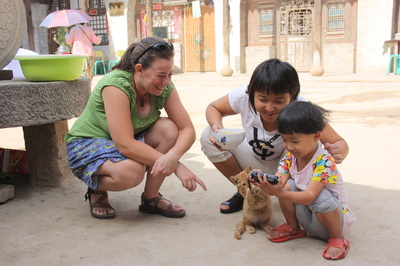
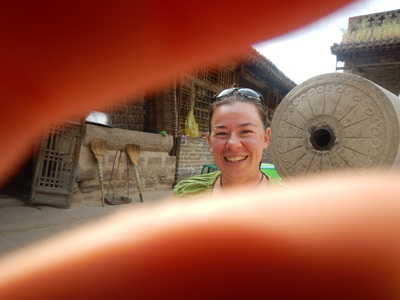
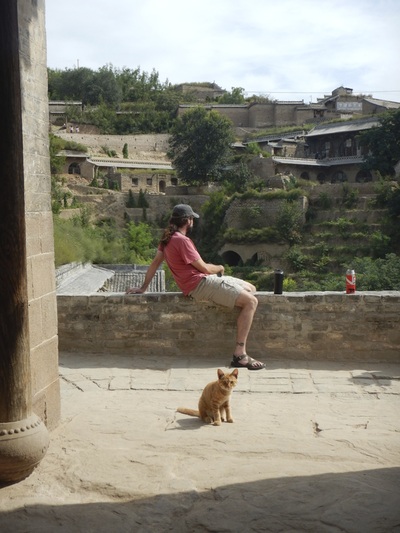
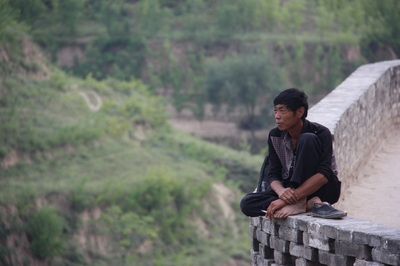
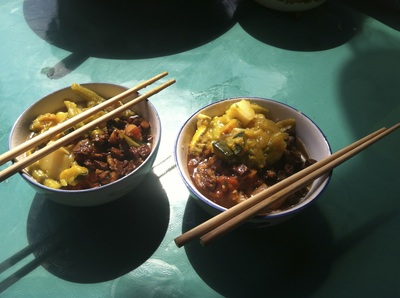
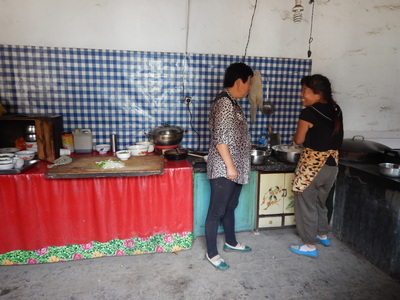
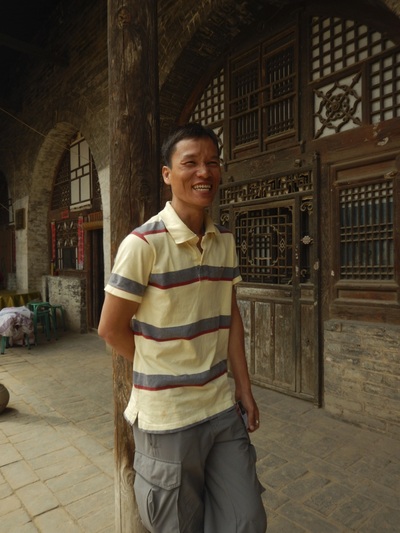

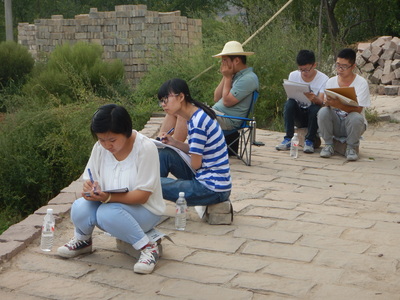
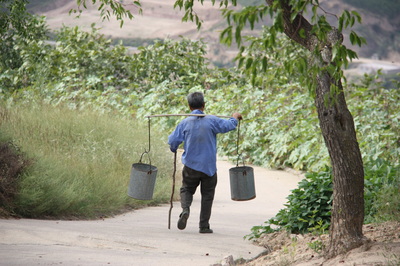
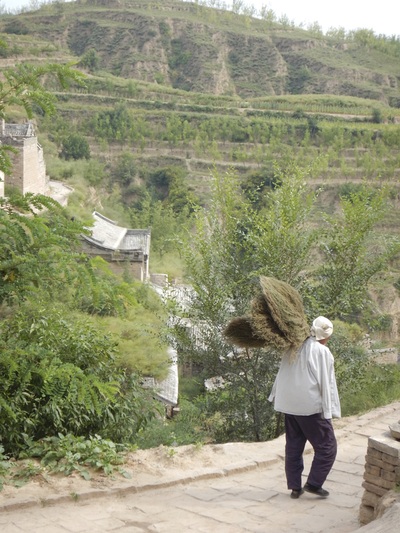
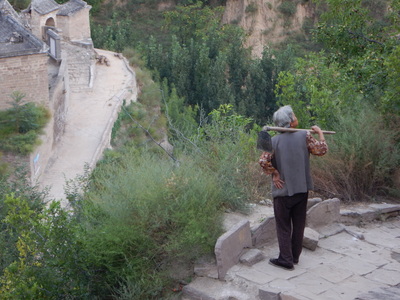
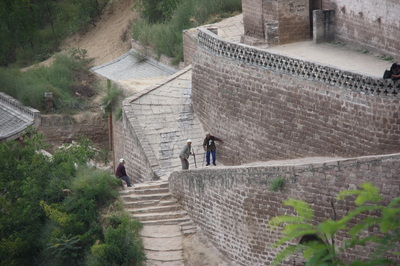
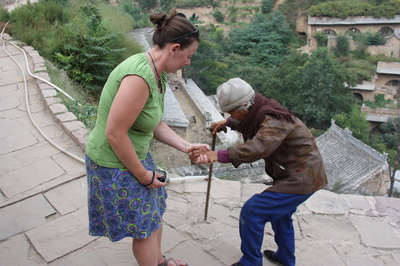
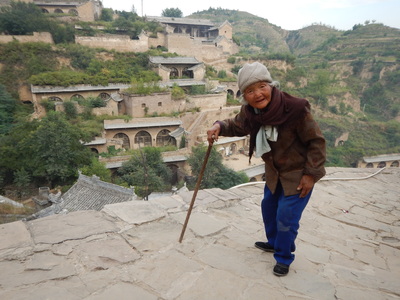
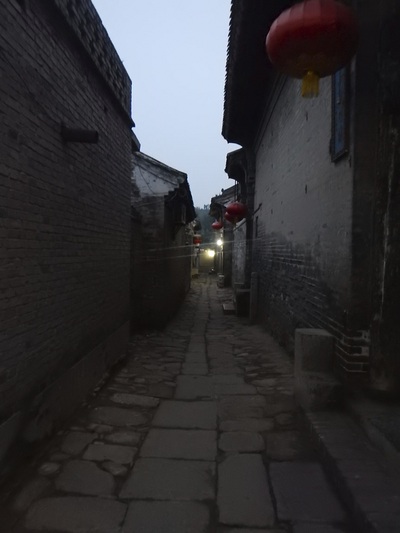
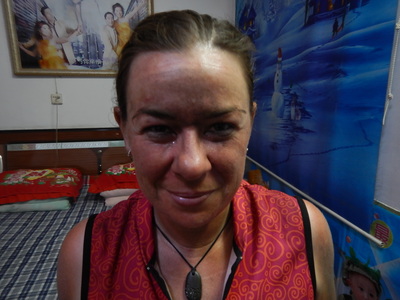
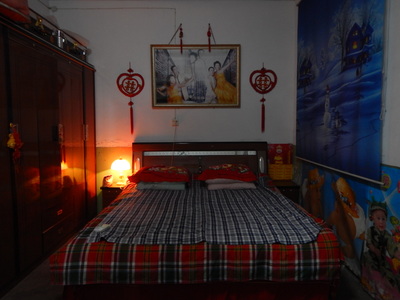
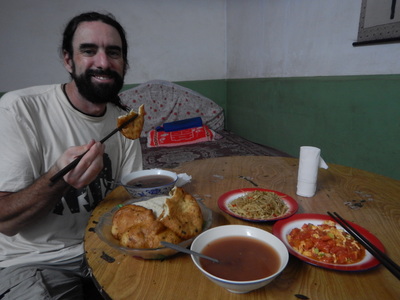
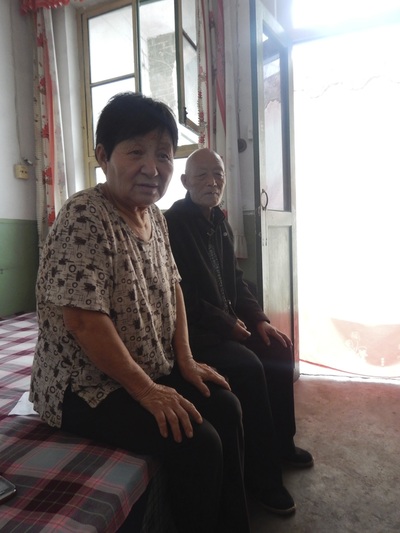
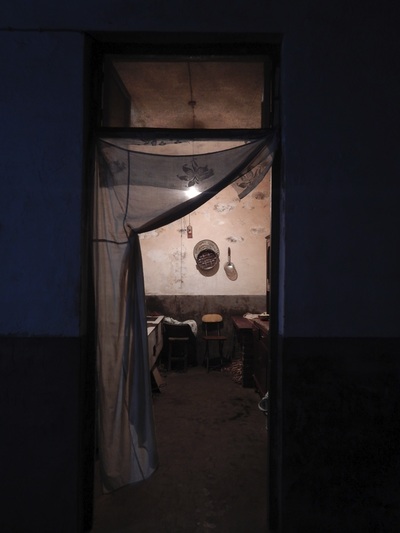
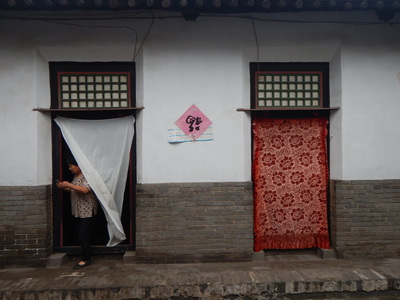
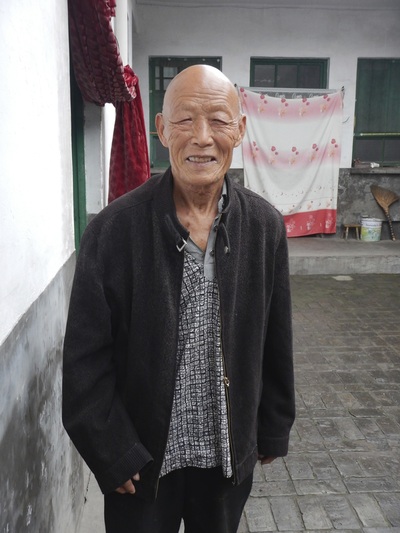
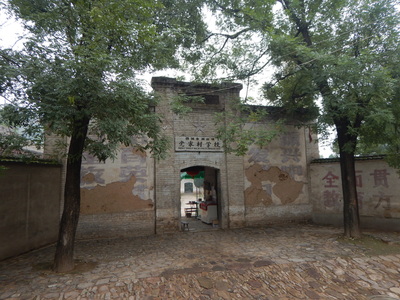
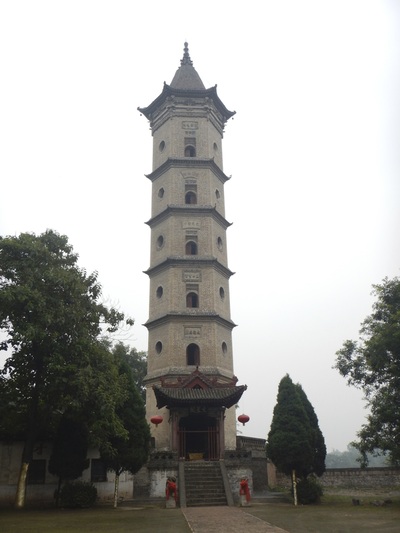
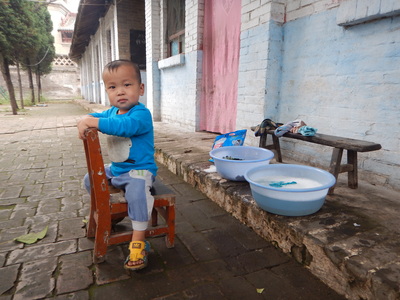
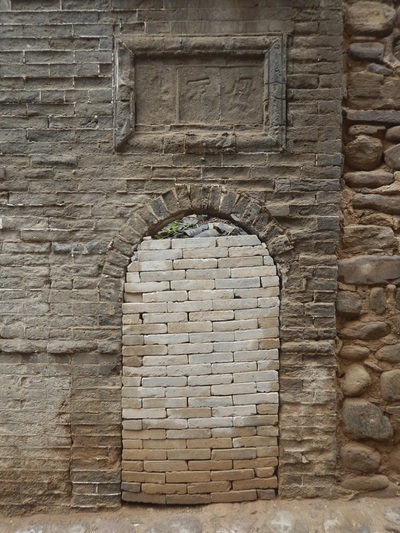
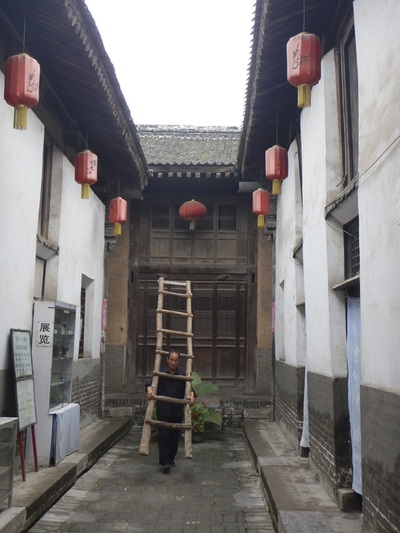
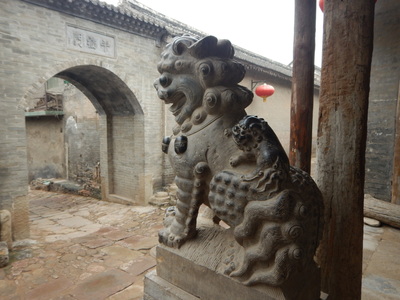
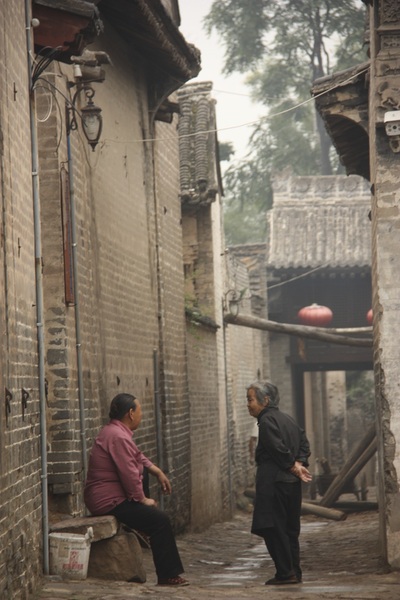
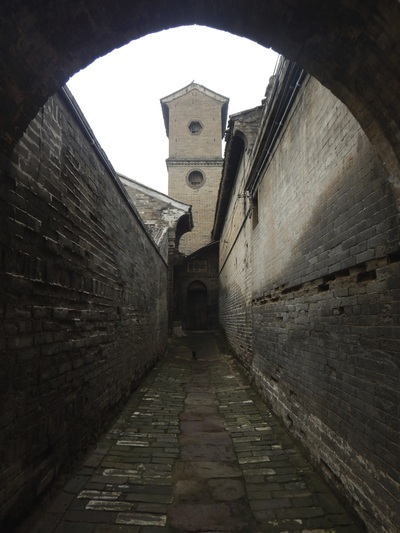
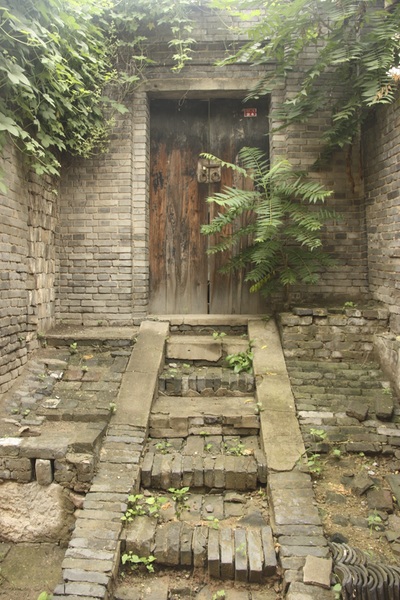
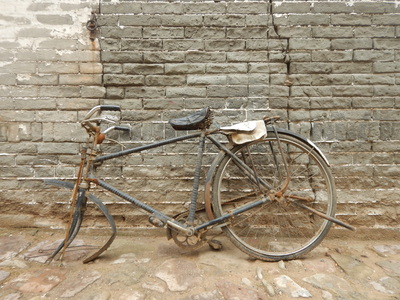
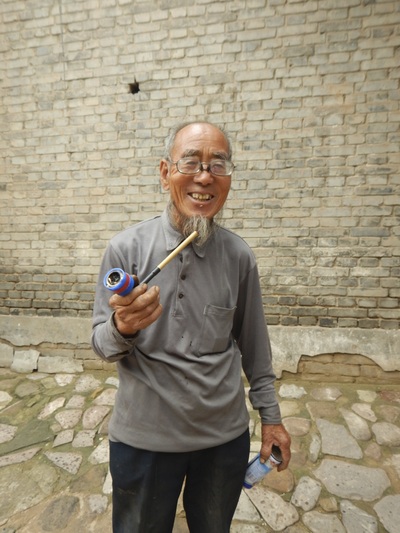
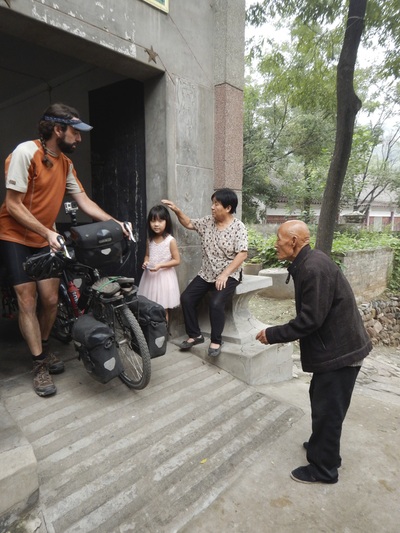
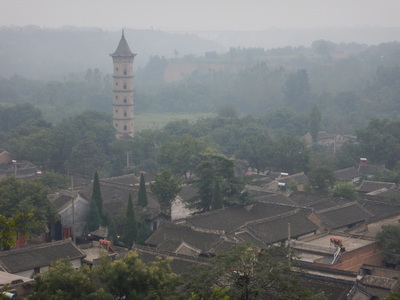
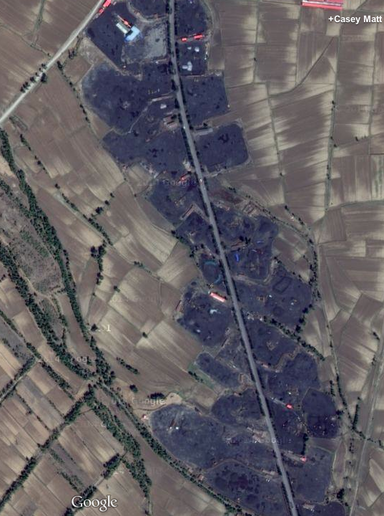
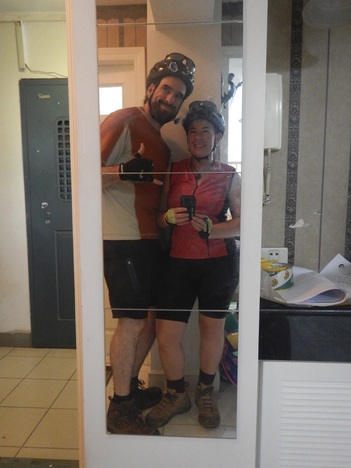
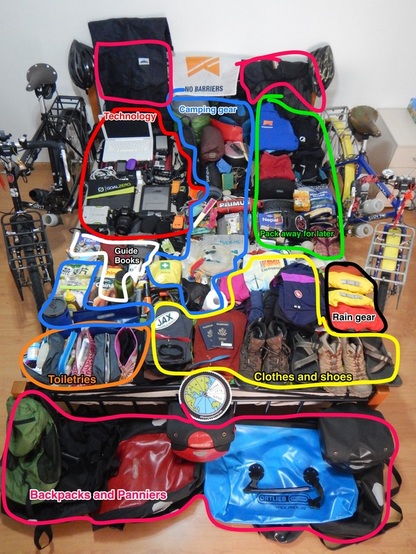
 RSS Feed
RSS Feed
